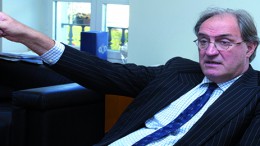“People in financial firms who cheat and abuse markets have got to go to jail”
MADRID | March 26, 2015 | By Ana Fuentes | In the second part of our exclusive interview with the IOSCO Secretary General, David Wright speaks about corporate oversight and the need to change a culture which has conflicts of interests at its centre. [You can check Part 1 here]




